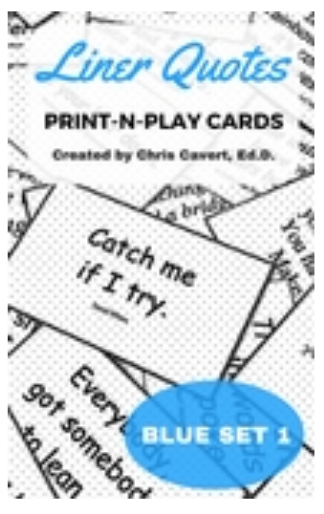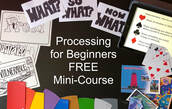
As I have written about in the past (Educators on the Challenge Course - look for the Essays), adventure practitioners are educators, and they too have pedagogies - ways of working with their groups that impart knowledge or skill.
Now, with the summer season looming in the near future it might be a good idea to call your pedagogy to order. What "activities" will you use to impart knowledge and skills to your staff so that they are able to find success as an educator? With the limited amount of time you have to train staff, what will be the most effective and efficient way to use your pedagogy?
A few months ago I ran across a useful blog post from FacultyFocus.com entitled "Using Guerrilla Tactics to Improve Teaching." The ideas from the authors of the post are relevant to any educator who is tasked with training other educators (please read the article for the finer details of the process). I've taken some editorial liberties to make the "ground rules for guerrilla teaching" fit into an adventure education model I will call "Guerrilla Training:"
- A trainee agrees ahead of time to welcome a "guerrilla trainer" into any part of a program being lead by the trainee.
- The guerrilla trainer inserts him/herself into the trainee's group (being mindful of the timing), and observes silently for a minimum of 5 minutes to become acquainted with the topic/flow of the group's process.
- The guerrilla trainer is then "able to become part of the [group] and interact with the students." The trainer, "may pose questions, give comments, conduct an activity, etc." (In essence, modeling a part or parts of the facilitation process for the trainee.)
- The trainer takes no more than 10 minutes for the "training attack" session, leaving on the same wind that brought him/her into the group. (To be clear, 5 minutes for silent observation and than no more that 10 minutes of interaction.)
As the Guerrilla Tactics blog authors note, "In the spirit of guerrilla marketing [a creative low-cost strategy to meet conventional goals] there are several educational "buzz" benefits created with minimal direct cost" - role modeling, collaboration, flexible training times, sharing expertise, "bits" of information instead of overload, and showing support for the trainee. This "drop-in" training allows for some relevant observation time for the trainee. Something that is difficult to building into training sessions but very important to include.
Making Guerrilla Training part of your training pedagogy might prove to be useful, effective, and efficient. Let me know how it goes. And, if you have other pedagogical training ideas for us please share in the comments below.
All the best,
Chris Cavert






 RSS Feed
RSS Feed